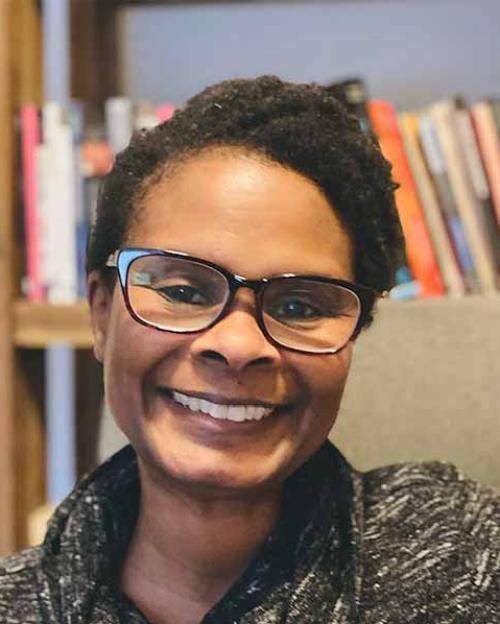The role of data in the pandemic will be explored in this year’s annual Digital Humanities Lecture for the Society for the Humanities, “Homegoing: Transforming the Datafication of Black Death into the Recovery & Restoration of Black Humanity.” Kim Gallon, associate professor of history at Purdue University, will demonstrate how computational humanities offers an opportunity to redefine “crisis” through the Black American experience and turn it into a defining moment for the recovery and reimagination of Black humanity. The lecture will take place online on February 24 at 5:00 p.m. and is free and open to the public with registration in advance.
Gallon is the author of the influential essay “Making a Case for the Black Digital Humanities,” in which she underscores the potential for Black studies to redefine the field of Digital Humanities itself. “Digital tools and platforms should be mobilized to interrogate and disclose how the humanities are developed out of systems of power,” says Gallon. She notes that when “humanity” is studied within the digital humanities, it is necessary to examine who that term has systemically excluded, and why, and how. For Gallon, studying the Black experience within the field of Digital Humanities becomes an opportunity, she says, to “disrupt the ontological notions that would have us accept humanity as a fixed category.”
Jeremy Braddock, director of Cornell’s media studies initiative, describes Gallon as “a leading figure in Black digital humanities — and therefore the digital humanities more generally. Both her programmatic writing and her digital projects reveal the way digital humanities can provide new ways of connecting the historical to the most pressing issues of the present day,” says Braddock, associate professor of literatures in English in the College of Arts & Sciences (A&S).
In addition to teaching at Perdue University, Gallon is the founder and director of two black digital humanities projects: The Black Press Research Collective and COVID Black, and is a co-PI for the new Andrew W. Mellon-funded Black Beyond Data project.
The annual Digital Humanities lecture is sponsored by the Society for the Humanities (A&S) and the Central New York Humanities Corridor from an award by the Andrew W. Mellon Foundation.




